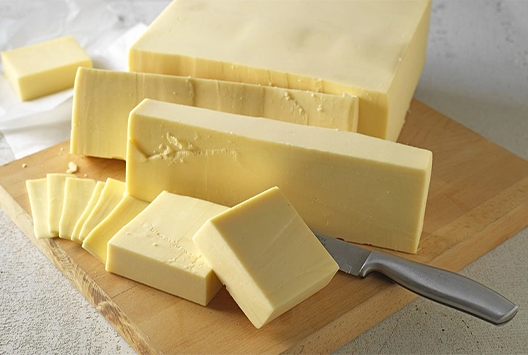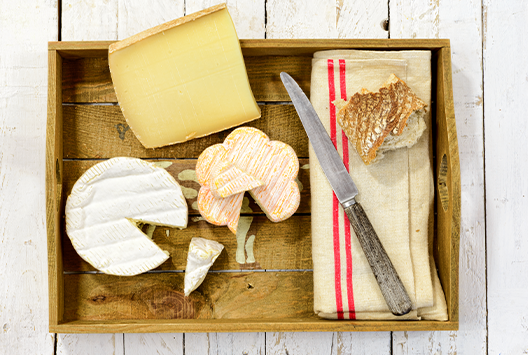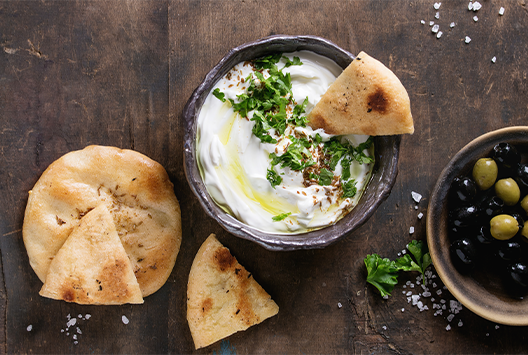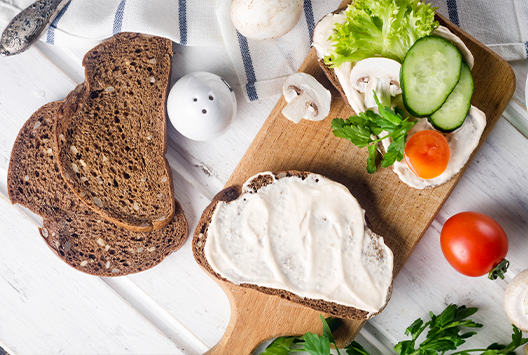
Food Watch: How Long Can I Leave My Block of Cheese Out?
Similar
Cheese is a favorite among many, but not everyone cares for their cheese as much as they should.
Everybody knows that leaving out uneaten food is terrible because it can lead to food contamination, mold growth, and it can attract pests. The same can be said about leaving certain foods unrefrigerated and that includes cheese. But worry not, we’re going to dive deep into storing tips and tricks regarding your favorite cheese.
What is cheese?
People make cheese by taking milk and introducing bacteria to it to create an acidic environment. This environment separates the milk into a solid curd and a liquid whey. They’ll cook, cut, and press the curd together to produce more whey. Next, they’ll add salt and other flavorings and let the dairy product age for several weeks or even longer to create cheese.
How long have people been making cheese?
People have been crafting cheese for thousands of years without mechanical refrigeration. Aging is a crucial part of the process, where they store blocks of cheese at moderate temperatures and leave them to mature for long periods. This step is critical in developing the best-tasting cheese and can take weeks, months, or even years.
Can cheese go bad?
The good news is that pasteurized cheese won’t likely cause stomach problems, even if you leave it out for a few days. People have pasteurized the milk used to make the cheese, which means they heated it to kill potentially harmful bacteria. However, if you leave it out for an extended time, the dairy product can spoil, and the bacteria will change its color, texture, flavor, and aroma.
You must also be more careful with unpasteurized cheeses like Brie, Camembert, Feta, and other fresh cheeses as foodborne illnesses are more present. Such cheeses can be contaminated with different bacteria such as E. coli, salmonella, and listeria.
Why can’t it go bad?
The oldest and most common food preservation technique removes the water and oxygen bacteria needed to survive. It works best for cheese because it squeezes most of the water.
Unfortunately, like most things, cheese can experience mold growth because of spores. Luckily, you can cut off the moldy parts, and the rest of the dairy product is safe to eat. While keeping certain cheeses at room temperature will not cause food poisoning, its quality will suffer because of the drying out and fat separation.
Hard vs. Soft Cheese
When it comes to storing, the type of cheese is the most important consideration. Hard cheeses will last longer and are less likely to cause health issues. However, soft cheeses - such as Brie, cream cheese, ricotta and others - must be handled more carefully. These cheeses, as well as unripened cheeses - such as halloum and akawi - should remain refrigerated at all times. They can be kept out for two hours tops.
How long can you let cheese sit out?
Depending on its type, cheese can stay out of the refrigerator for two hours tops if you store it in a cool place. You should store fresh, unripened cheeses in the fridge, while aged dairy products can stay out for up to a day. Moreover, anything you can’t eat within a day belongs in the refrigerator.
Keeping it safe and cheesy
Cheese remains a popular dairy product because of its versatility and flavor. You can enjoy this food better by storing it properly and knowing how to use it for different foods.
At Baladna, we strive to bring Qatar the freshest and most authentic products to help people enjoy their meal times better. Browse through our products today!



